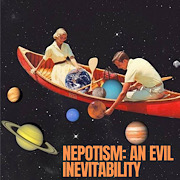|
I might be ruining someone's day here but still thought I had to share it:
|
|
|
|

|
| # ? May 9, 2024 23:54 |
|
punk rebel ecks posted:I have two broad questions: If you mean democracy as in “the People as a whole influence and direct politics” it wasn’t democratic. If you mean democracy as in there are elections: it was democratic This is applicable to us today.
|
|
|
|
Also like today elections probably did really matter even though you were selecting between rich assholes who only care about their career
|
|
|
|
Roman engineering also took a long time to be surpassed on a wide scale. Even simple things like standardized roads. I've read Roman concrete is more durable than anything modern even, although that might be a sort of pop-history fact that isn't necessarily true.
|
|
|
|
Jamwad Hilder posted:Roman engineering also took a long time to be surpassed on a wide scale. Even simple things like standardized roads. I've read Roman concrete is more durable than anything modern even, although that might be a sort of pop-history fact that isn't necessarily true. This was discussed a few pages back and the conclusion was that the Roman concrete that has survived 2000 years is more durable than our everyday concrete but we can totally match it, its just more expensive. There was probably lower-quality roman concrete too which just doesn't survive
|
|
|
|
To give an idea of how unbalanced this voting system was, here's how voting was done in the assembly of the centuries (the one originally based on military contribution), which I believe elected all senior magistrates and was one of the options magistrates could choose from to rubber stamp bills passed by the senate When the census counted up Roman citizens, you'd be assigned to one of 193 groups. These groups each had a single vote in the assembly representing the consensus of their members (sort of like the electoral college where each subdivision is winner-take-all). There was a bunch of complications to do with the fact that each magistracy had multiple slots to fill but I'm going to ignore that. Which group you fell into was based on your wealth (or rather, the wealth of your family; you would be in the same class as the head of your extended family) and age. The following property values are measured in asses, an as being the value of a pound of copper. Converting ancient currencies to modern ones is tricky, but all of these values represent wealthy families. The top tier of walth, families who own 100k or more asses, had 40 groups for people aged 17-45, and 40 groups for people 46 years or older. Assuming average demographics for a pre-modern society, the youngs would outnumber the olds 3 to 1 but got the same number of total votes. The second class, 75k-100k asses, had 10 groups for each age range. The third and fourth classes, at 50k and 25k asses, also had 10 groups per age range. The fifth class, at at least 11k asses, got 15 classes per age bracket. There were also 18 classes for cavalry, 2 for engineers, and 2 for musicians (I believe these were also divided by age but I'm not sure). The cavalry groups were from extremely wealthy families but I don't know the exact value cutoff. I don't know how musician or engineer groups were populated. The final group, bringing us from 192 to the final total of 193 groups, is everybody else. An old man in the cavalry wealth bracket had a vote that was probably thousands or tens of thousands of times more valuable than a poor man, and even within a wealth bracket an old man's vote would be worth triple a young man's. e: for comparison, in an American presidential election, a citizen of Wyoming has their vote count about triple that of a voter from California. Any other pair of states would have a less extreme ratio. So at least we can say, as dumb and unbalanced our voting system is, it's not as dumb and unbalanced as the Roman one cheetah7071 fucked around with this message at 20:23 on Sep 18, 2019 |
|
|
|
I'd argue that at least the High Middle Ages were more advanced in terms of tech that would actually affect most people's day to day lives. Windmills are a huge deal if you're a farmer, which most people were, and agriculture in general developed massively thanks to better ploughs and crop rotations.
|
|
|
|
Jamwad Hilder posted:Roman engineering also took a long time to be surpassed on a wide scale. Even simple things like standardized roads. I've read Roman concrete is more durable than anything modern even, although that might be a sort of pop-history fact that isn't necessarily true. As Cheetah pointed out, it's a pop history thing that isn't actually true. Things like roads would have been possible to build, there just wasn't the political or economic demand driving their construction in the middle ages. When you start looking at structures, there's also a huge survivorship bias to account for. While there are famous Roman era structures that still exist today - most of them hideously overbuilt because they didn't have the engineering and mathematical expertise to build them more efficiently - for every one of those there's dozens more that would have collapsed and been pulled down for scrap.
|
|
|
|
Guildencrantz posted:I'd argue that at least the High Middle Ages were more advanced in terms of tech that would actually affect most people's day to day lives. Windmills are a huge deal if you're a farmer, which most people were, and agriculture in general developed massively thanks to better ploughs and crop rotations. The lack of long-distance trade nullifies a lot of this. Evidence is that everyone in the empire benefited from trade, people were using/eating goods from all over the place which made up for local inefficiencies. You find things like North African pottery in random rear end farms in Britain and whatnot, trade doesn't appear to have been restricted to the upper classes. Famine was not common in the empire since there were huge surpluses in major farming regions like Egypt or Africa which could be redistributed as needed. I would agree that individual farms were more productive and advanced in the high middle ages. I'm not sure it actually made people's lives any better. You could argue that better farming was required given that you couldn't import grain en masse from Crimea if there was a crop failure or whatever.
|
|
|
|
Depends a whole lot on who you take “most people” to be. Depending on time and place “most people” might live in wattle and daub instead of a nice dressed stone house with clay roof tiles, they might eat out of wooden or local handmade ceramic bowls instead of mass-produced wheel-turned ones from hundreds of miles away...I think comparing “Roman” and “medieval” technology is a crapshoot, these are 1000+ year periods that overlap and cover enormous dynamic heterogeneous areas
|
|
|
|
Yeah the point is you have to specify times, locations, and what technology you're looking at. There are areas where classical Romans remained unsurpassed until way more recently than you'd think. That doesn't make the still common narrative of the middle ages being a technological regression and ONE THOUSAND YEARS OF STAGNATION any less utter bullshit than it is. E: Also you can't decouple the political environment from tech. Some midrank lord in France didn't have a giant industrial works mass producing standardized arms for his military because he didn't need it. The Romans did. A lot of the Roman technology that disappears is directly related to keeping a giant city functional, like their waterworks. When your giant cities are 20,000 people instead of a million+, you're probably not building sewers even if you know how to. Grand Fromage fucked around with this message at 20:53 on Sep 18, 2019 |
|
|
|
Thanks for the responses everyone. I always thought that Rome's version of democracy was as much of a bastardization as Russia's version of socialism.
|
|
|
|
Oh yeah, absolutely, life was better on average in Roman times (unless you're living through the crisis of the third century in a borderland), I'm not questioning that. Though it was, as you say, due to having a more stable and interconnected world, and the question was specifically about the level of technological advancement.
|
|
|
|
punk rebel ecks posted:Thanks for the responses everyone. A bastardisation of what, exactly? They didn't exactly have the US constitution to compare themselves to. Greek democracy, for example, even in Athens, wasn't available to the majority of the population. Also, like Grand Fromage says, they never claimed to be Athens. In general you have to bear in mind that this is 2000 years ago and dragging modern notions of politics into how you view things back then is not going to be helpful. feedmegin fucked around with this message at 21:15 on Sep 18, 2019 |
|
|
|
feedmegin posted:A bastardisation of what, exactly? They didn't exactly have the US constitution to compare themselves to. Greek democracy, for example, even in Athens, wasn't available to the majority of the population. Bastardization in terms of granting (or at least somewhat getting in the ball park) everyone the right to vote.
|
|
|
|
punk rebel ecks posted:Bastardization in terms of granting (or at least somewhat getting in the ball park) everyone the right to vote. Assuming you count slaves, women and eg people without Athenian ancestry on both sides as 'everyone', this was not a thing anywhere in the Ancient world ever and they would have been horrified at the notion. This is exactly what I mean by not bringing modern political conceptions into studying the past.
|
|
|
|
punk rebel ecks posted:Bastardization in terms of granting (or at least somewhat getting in the ball park) everyone the right to vote.
|
|
|
|
feedmegin posted:Assuming you count slaves, women and eg people without Athenian ancestry on both sides as 'everyone', this was not a thing anywhere in the Ancient world ever and they would have been horrified at the notion. This is exactly what I mean by not bringing modern political conceptions into studying the past. What about universal male suffrage like The French Revolution or United States in the 1850s?
|
|
|
|
punk rebel ecks posted:What about universal male suffrage like The French Revolution or United States in the 1850s? There might have been a smallish group of males in the 1850s who did not have the right to vote To answer the question with less sarcasm: in order to believe that universal male suffrage is a good thing, you first need the dogma that every man is created equal. Otherwise it seems like madness.
|
|
|
|
Even if you're talking say, french revolutionaries the idea that everyone should get a say in things is not at all a universal idea. Let alone romans.
|
|
|
|
punk rebel ecks posted:What about universal male suffrage like The French Revolution or United States in the 1850s? Also, that's two thousand years away from the period we're discussing--you can't call the roman political system a bastardization because you are comparing them to ideas they did not have. Explain to a roman guy from 1 ad or an Athenian from Pericles's time why "everyone should be able to vote" is desirable.
|
|
|
punk rebel ecks posted:Bastardization in terms of granting (or at least somewhat getting in the ball park) everyone the right to vote. the romans were closer to that ideal than basically any other ancient state, in the late republic. citizenship was broadly extended throughout italy; all non-slave italian males could hypothetically vote. the late republic was a shitshow for many other reasons, obviously, but the republic was definitely overall on an arc of increased suffrage over time. the election system seems weighted, complex, and arbitrary through a modern lens, and it was, but it was still closer to a modern democracy than the vast majority of historical governments.
|
|
|
|
|
skasion posted:There might have been a smallish group of males in the 1850s who did not have the right to vote Yeah, I figured slaves didn't have the right to vote in ancient Rome.
|
|
|
|
Lol, punk rebel ecks is doing that thing he always does in D&D where he pops into a country-specific thread and asks stupid questions about it, but this time the country is the Roman Republic.
|
|
|
|
here's a good video about roman elections, it helped me visualize it a lot https://www.youtube.com/watch?v=trrqslUpfdw
|
|
|
|
Silver2195 posted:Lol, punk rebel ecks is doing that thing he always does in D&D where he pops into a country-specific thread and asks stupid questions about it, but this time the country is the Roman Republic. gently caress off.
|
|
|
|
Silver2195 posted:Lol, punk rebel ecks is doing that thing he always does in D&D where he pops into a country-specific thread and asks stupid questions about it, but this time the country is the Roman Republic. *the rest is stats mongering
|
|
|
|
The Romans(or at least the Roman elite) did not see democracy as a good thing. If you read the ancient Greek philosophers, most if not all think democracy is not a good idea on its own basically this HEY GUNS posted:Imagine I'm an Athenian from the time of the Persian War or a Roman from 1ad. Why is this good?
|
|
|
|
Guildencrantz posted:Though it was, as you say, due to having a more stable and interconnected world, and the question was specifically about the level of technological advancement. I don't think you can meaningfully separate the former from the latter. Sharing of knowledge, the sourcing of raw materials, long supply chains are all important factors in technological advancement. This is why I find the whole "modern scientist gets sent back in time" question really interesting. Because basically they can't do very much, without being able to draw on preexisting networks.
|
|
|
Elyv posted:The Romans(or at least the Roman elite) did not see democracy as a good thing. If you read the ancient Greek philosophers, most if not all think democracy is not a good idea on its own Of course the word democracy has been extended quite heavily. Even now we accept limits that may eventually be seen as ridiculous. Though, were not the Viking-era Norse also surprisingly democratic by our standards, or is that just mythologizing?
|
|
|
|
|
At least one ancient writer applauded the Roman republic for balancing the power structures of monarchy (in the form of magistrates), oligarchy (in the form of the Senate) and democracy (in the form of public assemblies). What ancient people considered praiseworthy was that it took some positive elements from democracy while avoiding the problems--that was the intellectual framework in which Rome existed. On a side note, its questionable whether those three branches were ever particularly balanced, and as I said in earlier posts even the popular assemblies weren't particularly representative of "the people" as we'd understand it.
|
|
|
|
I'm a little curious where you even got the notion that ancient Rome was a democracy. I basically never see the word used to describe it.
|
|
|
|
I ask these questions because I was taught that American democracy is built off a similar structure as the Romans or Greeks system of government.cheetah7071 posted:I'm a little curious where you even got the notion that ancient Rome was a democracy. I basically never see the word used to describe it. I was told that, at least Greece, "had democracy" in school and that "everyone voted in Rome."
|
|
|
|
punk rebel ecks posted:I ask these questions because I was taught that American democracy is built off a similar structure as the Romans or Greeks system of government.
|
|
|
|
punk rebel ecks posted:I ask these questions because I was taught that American democracy is built off a similar structure as the Romans or Greeks system of government. The American Republic, to use the word that the founders would have used (democracy as a word wouldn't come into fashion until the early 1800s), was modeled on the Roman republic at least partially. You can see this in the split powers between the presidency, the senate, and the house of representatives, which align, kind of, with the consuls, senate, and popular assemblies, respectively. Remember that in the unamended constitution, the senate was elected by state legislatures, not by direct popular vote. But Rome wasn't the only model; the founders also drew inspiration from things like the Lycians who formed one of the few functional pre-modern federations. I am not aware of the American founders drawing any intentional inspiration from the Athenian government, and they probably would have been horrified by the notion, because Athens was seen as a massive shitshow in the intervening 2300 years (and it's hard to disagree with the notion that it was a shitshow) punk rebel ecks posted:I was told that, at least Greece, "had democracy" in school and that "everyone voted in Rome." American public schools like to emphasize the democracy of the Greeks because it was a thing that some Greeks had that we value today, but outside of the cities in Greece with democratic governments for a period of a few hundred years, almost no pre-modern societies thought democracy was a good idea
|
|
|
|
HEY GUNS posted:who told you these things High School history teacher.
|
|
|
|
Silver2195 posted:Lol, punk rebel ecks is doing that thing he always does in D&D where he pops into a country-specific thread and asks stupid questions about it, but this time the country is the Roman Republic. Goddamnit, that's my gimmick. 
|
|
|
|
punk rebel ecks posted:I ask these questions because I was taught that American democracy is built off a similar structure as the Romans or Greeks system of government. The American revolutionary leaders were inspired by antique (and other) models, but they were looking with hindsight and deliberately trying to avoid problems the Roman republic (among others) encountered. Hence, for example, the American republic depends on civilian control of the military. Not only is this not how the Romans did things, but the distinction would have been unmeaning to them. Roman state officers had the power of imperium, which equally well enabled them to enact justice and to command troops. So when the Roman state ran into serious trouble, leaders began raising armies to enforce their political programs.
|
|
|
|
There were as many Greek systems as there were Greek cities, so 'the Greek system' is meaningless.
|
|
|
|

|
| # ? May 9, 2024 23:54 |
|
cheetah7071 posted:The American Republic, to use the word that the founders would have used (democracy as a word wouldn't come into fashion until the early 1800s), was modeled on the Roman republic at least partially. You can see this in the split powers between the presidency, the senate, and the house of representatives, which align, kind of, with the consuls, senate, and popular assemblies, respectively. Um. They align a lot more closely with the 18th century King, Lords and Commons tbh.
|
|
|










 Yes, it's like a lava lamp.
Yes, it's like a lava lamp.

















